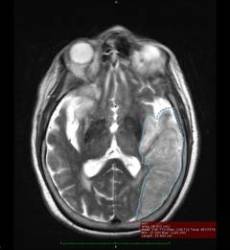Mar 22 2010
The P3SENS consortium has launched a biosensors project for developing a sensitive, user-friendly, and cost-effective medical diagnostic device for emergency point of care applications.
 Brain Scan
Brain Scan
The 3.6M€ project that is cofunded under the 7th EU Framework Program is focusing on the development of photonic crystal technology for use in the multi-target biodetection of diseases like stroke or cerebrovascular disease that are difficult to identify. An effective treatment of stroke is only possible through speedy detection.
According to an estimation made by the World Health Organisation (WHO) in 2007, every year 15 million persons globally suffer from cerebrovascular disease, around five million end up with some form of permanent disability, and about five million succumb to the condition. A whopping 650,000 people die due to the condition every year in Europe alone. Cerebrovascular disease is at present the most prevalent fatal neurological disease and is a major reason for serious disability in the long term.
The diagnosis of neurological conditions is very difficult and is dependent on the understanding of physical symptoms, followed by imaging of the brain for a positive detection of a stroke. The detection of the biochemical markers in the patient’s blood is a smart option that is likely to enhance the possibility of a patient’s survival and ensuing life quality.
The P3SENS consortium was created for developing a suitable biochemical detection gadget for emergency-medicine applications like speedy lab tests in hospitals, or diagnosis in an emergency room or an ambulance. The combination of a group of clinically tested and proven bio-recognition components, ultra-sensitive photonic crystals, and low-cost manufacturing technology is likely to result in the development of a biosensor system that would be helpful to stroke patients all over the world.
The P3SENS project has adopted a multidisciplinary approach, with Belgium-based Multitel asbl heading the consortium that includes the Stratophase Ltd in the U.K., the University of Glasgow in the U.K., VTT Technical Research Centre of Finland (VTT), the Research Institute for Technical Physics and Materials Science (MFA) in Hungary, Bayer Technology Services GmbH in Germany, and the University of Geneva in Switzerland as its members.